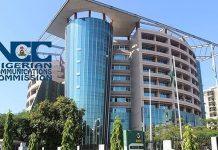The Federal Capital Territory’s Minister, Nyesom Wike, has approved a draft property tax code for Abuja, so property owners should prepare to begin paying taxes on their properties.
As required by the Capital Gains Tax Act of 2004, it was learned that the FCT’s Internal Revenue Service has started enforcing the capital gains tax in Abuja.
A person who disposes of chargeable assets in a year of assessment may be subject to a 10 percent capital gains tax (CGT) on the entire amount of chargeable profits (after deducting permitted expenses from the computation of such gains).
In addition, the revenue service of the capital city was able to increase its Internally Generated Revenue to around N140 billion, according to Haruna Abdullahi, Executive Chairman of FCT-IRS, who made this revelation to journalists in Abuja on Sunday.
Speaking on the steps the agency was taking to increase revenue for the Federal Capital Territory, Abdullahi stated the minister had given his approval to a number of important projects that would help them do so.
“In the last three weeks, the minister has approved some huge initiatives that will undoubtedly change the dynamics in terms of the bottom line,” the man stated. We just presented a draft proposal for the FCT property tax regulation to the minister.
“The Minister may create a property tax law for the Federal Capital Territory (FCT) under the FCT-IRS Act. We recommended it to the minister after a lengthy discussion, and he asked us to develop a regulation, which we did, and he approved the idea.
The FCT-IRS completed the draft, but that is insufficient; more stakeholders are required, so we are reviewing it as part of an interagency partnership. Thus, he granted permission for the initiative to proceed with the draft review and return later.
He will then sign the regulation when it has been gazetted and put into effect at the end of the day. Thus, that alone ought to demonstrate to you that the city’s IGR is greatly impacted in a positive way.
He emphasized that the minister’s approval of the full application of the capital gains tax in Abuja will also help the Federal Capital Territory meet its income projections.
Furthermore, we just established a new committee to oversee the application of the Capital Gains Tax law. There used to be relatively little capital gains tax paid because people would just go out and pay on their own volition.
“However, now that the minister has been informed and has given his approval for the interagency cooperation, we will start implementing the capital gains tax in its entirety.
According to Abdullahi, “you can envision an FCT with a property tax and a fully implemented capital gains tax. Then, about a month ago, there was a circular where the minister approved the implementation of Section 31 of the FCT IRS Act and Section 85 of the Personal Income Tax Act.”
According to the head of FCT-IRS, “in my first meeting I told the staff that we cannot do much if we do not implement Section 85, but it is a huge section that needs political support.” This was two years ago. And the minister showed up, of course, and approved of it.
“What that means is that all of us must have a tax clearance certificate,” he said, elaborating on the enormous significance of this. In addition to filing your returns, you need to obtain a tax clearing certificate.
“Building permits are not available because the development control unit requires proof of tax payment and TCC, both of which can be verified by the relevant tax authorities, before granting the permit.”
The implementation of Sections 85 of the Personal Income Tax and 31 of the FCT-IRS Act 2015, the implementation of the Capital Gains Tax, and now the Property Tax regulation, according to Abdullahi, “should take us to certainly above 50 to 60 percent of what we are doing at the moment.” And the bottom line will benefit greatly from that.
Regarding whether the agency was having trouble collecting taxes in the city, Abdullahi said that these were political problems since the agency needed the minister’s political will to go through many obstacles.
This is the reason I bring up the fact that the minister has eased the load by providing us with the necessary political backing. General operational problems and a lack of knowledge regarding what really occurs and what is intended to occur are the other two.
“When you take into account the kind of letters we receive here, we face significant challenges from many stakeholders.” We make every effort to address them, though.
“But now that the minister has shown that revenue-related concerns are important to him, all city stakeholders can see that there is political will and that the administration is taking the right direction, so they won’t play around with it,” he said.
Join Television Nigerian Whatsapp Now
Join Television Nigerian Facebook Now
Join Television Nigerian Twitter Now
Join Television Nigerian YouTUbe Now






















